About Angel Hope House
Angel Hope House is a addiction and rehabilitation center that offers many services to help people struggling with addiction. They offer alcohol rehab, dual diagnosis, opioid addiction, drug rehab, adult program, LGBTQ friendly rehab, military rehab, women’s rehab, young adult rehab, detox treatment, inpatient rehab, sober living homes, family therapy, and trauma therapy. They are a reputable and well-known center that has helped many people in the past. If you or someone you know is struggling with addiction, please reach out to Angel Hope House for help.
Addiction Treatment Programs
Alcohol Rehab
If you’re ready to overcome alcohol use disorder, an alcohol rehab in New Jersey can give you the tools you need. Common services include counseling and classes on coping skills, emotional management, communication, and other key life skills. Alcohol rehab programs can provide inpatient or outpatient treatment.
Dual Diagnosis
Many people with addiction issues also have a mental health diagnosis, which is known as a dual diagnosis. Be sure to find a rehab in New Jersey that can treat both. Dual diagnosis programs may offer detox, inpatient treatment, and/or outpatient care. The key is that they provide integrated treatment for both mental health symptoms and substance use.
Opioid Addiction
The goal of an alcohol rehab in New Jersey is to give you the tools and skills you need to achieve long-term recovery. Drug rehab may include detox, inpatient treatment, and/or outpatient care. You’ll learn the roots of addiction and learn how to build a substance-free life.
Drug Rehab
In New Jersey, a drug rehab provides a combination of therapy and education to help clients overcome substance misuse. Drug treatment programs address the mental, emotional, and relational issues that may contribute to addiction. You’ll learn to build a new support network that supports your long-term sobriety.
Adult Program
An adult program in New Jersey addresses the unique needs of adults, such as finding secure housing, building a career, and raising a family. Some of the common services will include counseling and classes on coping skills, emotional management, communication, and other key life skills. Adult programs can provide inpatient or outpatient treatment.
LGBTQ Friendly Rehab
Offering specialized substance use treatment for the LGBTQ+ community, LGBTQ+ friendly rehabs in New Jersey provide a safe space to work on recovery. In addition to typical detox, inpatient treatment, and outpatient care, an LGBTQ+ friendly program may also provide classes about building healthy relationships, overcoming rejection, managing trauma triggers, and more.
Military Rehab
A military rehab in New Jersey provides an understanding environment that makes it easier to work on your long-term recovery. Some of the common services will include counseling and classes on coping skills, emotional management, communication, and other key life skills. Military programs can provide inpatient or outpatient treatment.
Women's Rehab
If you’re a woman struggling with substance use, consider a women’s rehab program in New Jersey. Some common services include counseling and classes on coping skills, emotional management, communication, parenting, and other key life skills. Women’s programs can provide inpatient or outpatient treatment.
Young Adult Rehab
Young adult rehabs in New Jersey address a wide range of substance use issues while also helping clients transition into adulthood. Some of the common services will include counseling and classes on coping skills, emotional management, communication, and other key life skills. Young adult programs can provide inpatient or outpatient treatment.
Insurance Coverage
Medicaid
There are many ways to pay for rehab in New Jersey, including using Medicaid if you qualify. Medicaid pays for most or all of the costs of rehab, making treatment much more accessible.
Private insurance
How do you pay for rehab in New Jersey? A good option is private insurance. Different plans have different coverage levels, so be sure to check with your insurance company for details. You may be responsible for certain costs, such as copayments and deductibles.
Self-pay options
You can pay for treatment in New Jersey using your own money, which is known as self-pay or private pay. Whether you write a check, get a medical loan, or electronically transfer money, you are able to choose the rehab you most prefer. Payment arrangements may vary depending on the level of care.
Financial aid
Trying to see if you qualify for financial aid programs can be a great way to pay for rehab in New Jersey. Treatment centers may offer grants or scholarships that make it easier for those who are lower-income to get the care they need. Contact the treatment center you’re interested in for details.
Levels of Care
- 1
Detox Treatment
The first step to a substance-free lifestyle is detox in New Jersey. During detox, you won’t just sit around. Instead, detox can include counseling, group activities, healthy meals, and more to help you move through withdrawal safely and prepare for rehab.
- 2
Inpatient Rehab
There are multiple options for addiction treatment in New Jersey. During inpatient treatment, you live at the facility and are able to focus on creating a new way of life. Inpatient treatment includes multiple approaches, including cognitive behavioral therapy (CBT), motivational interviewing (MI), and holistic therapy options.
- 3
Sober Living Homes
Sober living in New Jersey is focused on giving you a substance-free place to live, giving you the support you need to stay sober long-term. Some sober living programs are simply houses to live in and build your own life, while others include employment training, job assistance, life-skills classes, and more.
Therapies
Family Therapy
Attending family therapy in New Jersey is a way to address broken relationships and dysfunction, helping you establish long-term recovery. Family therapy sessions generally last 60 to 90 minutes and may include discussing marital issues, codependency, grief, domestic violence, trauma, and other topics that impact families. The goal is to create healthier relationships that can support recovery.
Trauma Therapy
Trauma-informed therapy in New Jersey can provide a way to process past events and create better coping strategies as you work through substance use treatment. When you receive trauma-informed therapy, it may include peer support, grief counseling, medications to support mental health, and developing healthier responses to emotional triggers.
Location
Contact Angel Hope House
Top Drug Rehab Centers in New Jersey
-
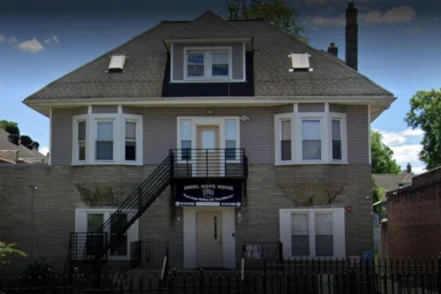 New Jersey
New JerseyAngel Hope House
800 Clinton Avenue Newark, New Jersey 07102
-
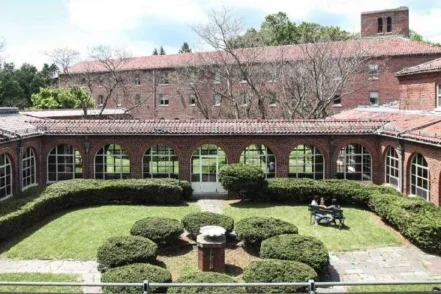 New Jersey
New JerseySunrise House Lafayette
37 Sunset Inn Road Lafayette, New Jersey 07848
-
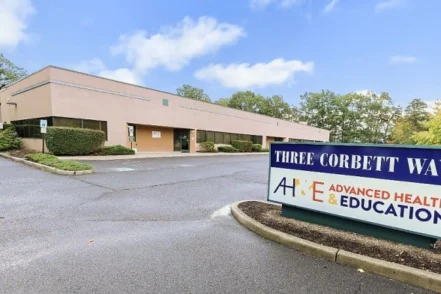 New Jersey
New JerseyAdvanced Health and Education
3 Corbett Way Eatontown, New Jersey 07724
-
 New Jersey
New JerseySpectrum Healthcare
74-80 Pacific Avenue Jersey City, New Jersey 07304
-
 New Jersey
New JerseyRecovery Centers of America at Voorhees
526 S Burnt Mill Road Voorhees, New Jersey 08043
-
 New Jersey
New JerseySOBA New Jersey
104 Bayard Street New Brunswick, New Jersey 08901
-
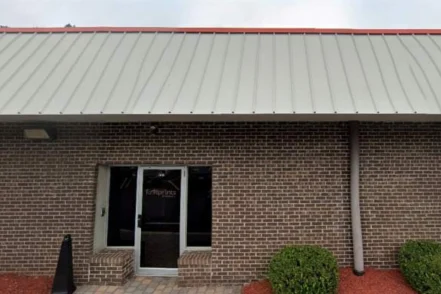 New Jersey
New JerseyFootprints to Recovery New Jersey
3535 Quakerbridge Road, Suite 300 Hamilton Township, New Jersey 08619
-
 New Jersey
New JerseyAbsolute Awakenings Treatment Center
3000 NJ-10 Morris Plains, NJ 07950
-
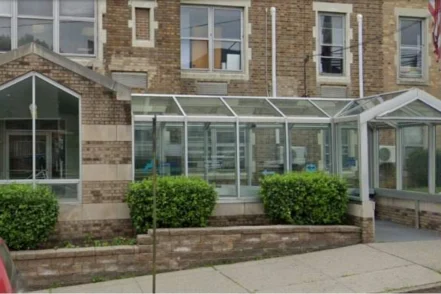 New Jersey
New JerseyEndeavor House North
206 Bergen Avenue, Suite 102 Kearny, New Jersey 07032
-
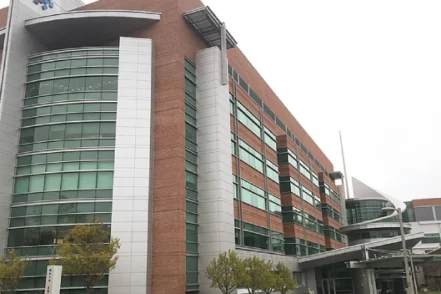 New Jersey
New JerseyJersey Shore University Medical Center Neptune
1945 State Route 33 Neptune, New Jersey 07753
-
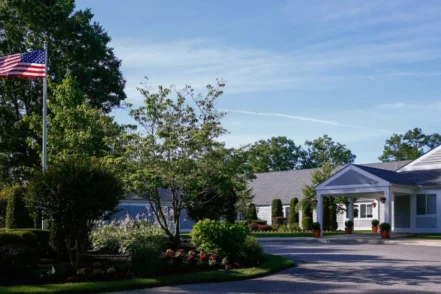 New Jersey
New JerseyRecovery Centers of America at Lighthouse
5034 Atlantic Avenue Mays Landing, New Jersey 08330
-
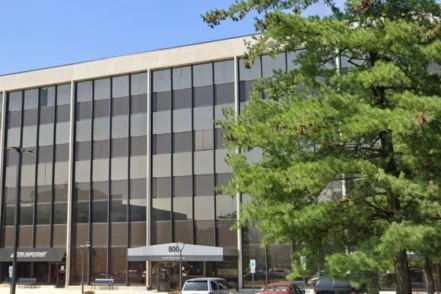 New Jersey
New JerseyLegacy Healing Center New Jersey
800 Kings Hwy N, Suite 100 Cherry Hill, New Jersey 08034
-
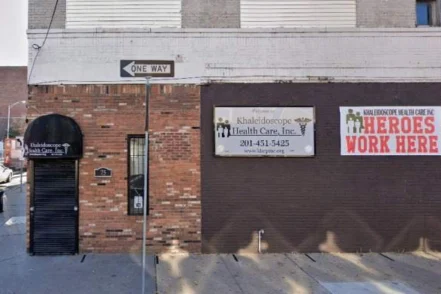 New Jersey
New JerseyKhaleidoscope Healthcare
75 Harrison Avenue Jersey City, New Jersey 07304